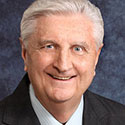Cornell University Physician: ‘I Was Wrong about Covid Vaccine Mandates’
By Foundation for Economic Education (FEE)

Scientists and public health officials must act more humbly and recognize the limits of their knowledge, writes Dr. Paul Fenyves.
The great martial artist Bruce Lee reputedly said that all mistakes are forgivable—if one has the courage to admit the mistake.
Paul Fenyves, a primary care physician in New York City who specializes in internal medicine, seems to have learned this lesson. Fenyves, a primary care doctor at Weill Cornell Medicine, recently admitted he was wrong to support vaccine mandates.
“I was initially supportive of Covid vaccine mandates in the Fall of 2021. At the time, I was told that Covid vaccines don’t only protect the individual receiving the vaccine, but they also benefit the community by reducing spread of the virus,” Fenyves wrote on the Substack Sensible Medicine.
Convinced that mandatory vaccination would create a “wall of immunity” that would bring the pandemic to an end more quickly, Fenyves said it seemed “reasonable to prioritize societal welfare over individual autonomy,” noting that early clinical trials of Pfizer’s vaccine were shown to stop 95 percent of infections.
“Surely a vaccine that prevents almost all infections would halt community spread, right? Wrong,” he writes. “Perhaps there was a time when Covid vaccines could significantly reduce community transmission, but that time was short-lived, and the virus quickly evolved and learned to evade vaccine-induced immunity.”
For Fenyves, his awakening moment came in December 2021, when Portugal experienced a massive surge of Covid despite a vaccination rate of more than 90 percent.
Fenyves concedes there are other reasons one could support mandatory vaccination even if it doesn’t reduce community spread, noting that some contend forced vaccination is moral because it’s done “for their own good.”
“I find these arguments to be weak justifications for violating an individual’s autonomy and mandating a medical intervention,” he writes. “Furthermore, these arguments are completely inadequate when applied to young people, whose risk of hospitalization from Covid is low, and whose likelihood of benefiting from vaccination is similarly low.”
Of Knowledge and Humility
Some may argue that Fenyves is right about vaccine mandates, but for the wrong reasons.
Vinay Prasad, an associate professor in University of California, San Francisco’s Department of Epidemiology and Biostatistics, argues vaccine mandates would be wrong even if there was a community benefit because the social costs are too high.
“My conclusion was always that the societal harm of mandates far exceeds any benefit, and as such I always opposed mandates,” writes Prasad in an introduction to Fenyves’s article.
Others might wonder why it took Fenyves until December 2021 to recognize he was wrong about vaccine mandates. Put aside for a moment that vaccine mandates violate bodily autonomy and the non-aggression principle, which makes them inherently immoral.
As early as August 2021 it was clear that “vaccine breakthroughs” were quite common and that naturally immunity conferred powerful protection against Covid. Why was it not until December 2021 that Fenyves realized he was wrong about vaccine mandates?
These are fair points, but they should not overshadow the larger lesson Fenyves is sharing, which is that scientists and public health officials must act more humbly with their immense power and recognize the limits of their knowledge.
“Those in the medical community who, like me, argued that vaccines should be mandated to protect the community should feel chastened,” writes Fenyves. “When considering mandating vaccines in the future, we should proceed with humility, acknowledging that our knowledge is far from perfect and our truths are often transitory.”
‘The Curious Task of Economics’
Two words in the last sentence are incredibly important: knowledge and humility.
These same two words are found in F.A. Hayek’s famous 1974 Nobel Prize speech, in which he warned against scientists and planners acting on “a pretense of knowledge.” Instead of recognizing the limitations of knowledge in an infinitely complex world, Hayek saw modern humans “dizzy with success” over the marvels of modern science, which had convinced them they possessed enough knowledge to engineer society effectively.
“The curious task of economics,” he famously wrote in The Fatal Conceit, “is to demonstrate to men how little they really know about what they imagine they can design.”
The antidote to this fatal conceit—which Hayek warned leads to “grave consequences”—is humility.
T.S. Eliot once observed that humility “is the most difficult of all virtues to achieve,” and a lack of it is what lurked beneath the deadly collectivist schemes of the twentieth century, from Stalin’s Five Year Plans to Mao’s Great Leap Forward and beyond.
The “fatal striving to control society” is born of arrogance, Hayek understood. And it was this arrogance that led public health officials and politicians to decide they had enough knowledge to make life-and-death decisions for others during the pandemic, to decide what they had to put into their bodies.
Fenyves is right that a healthy dose if humility is in order, and that the knowledge we possess is far from perfect.
If we fail to learn this lesson, the consequences could be even worse the next time government officials attempt to prevent a crisis from happening.
AUTHOR
Jon Miltimore
Jonathan Miltimore is the Managing Editor of FEE.org. His writing/reporting has been the subject of articles in TIME magazine, The Wall Street Journal, CNN, Forbes, Fox News, and the Star Tribune. Bylines: Newsweek, The Washington Times, MSN.com, The Washington Examiner, The Daily Caller, The Federalist, the Epoch Times.
EDITORS NOTE: This FEE column is republished with permission. ©All rights reserved.

This article is courtesy of DrRichSwier.com, an online community of citizen journalists, academics, subject matter experts, and activists to express the principles of limited government and personal liberty to the public, to policy makers, and to political activists. Please visit DrRichSwier.com for more great content.

